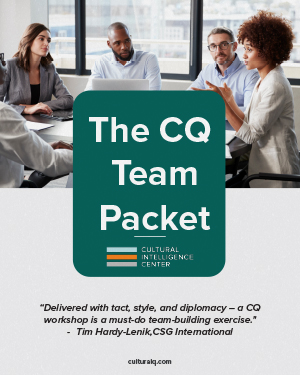I’m from Ireland but I’ve spent the last ten years working and doing research in China and Malaysia. My wife and kids are Malaysian so my cultural intelligence (CQ) is sharpened every day. One of the most important areas I’ve had to learn was “Face”, one of Asia’s most treasured ideals.
We don’t really do “face” in Ireland. You just speak your mind freely. But shortly after moving to Asia, I knew managing face had to be a priority for me.
I define “Face” as a heightened sense of one’s own dignity and the dignity of others. You “give face” to people by making them feel good through generosity, kindness and overall politeness. You “save face” by doing whatever you can to ensure your dignity isn’t comprised, particularly in front of others. Many Asians go to great lengths to allow others to ‘save face’, particularly through not chastising them in front of others. While many Westerners would agree that this is simply what it means to be polite, the difference is the extent of its importance in Asian collectivist cultures.
Researching ‘Face” in Malaysia
Two years ago, I conducted a qualitative study on the role of “Face” in Malaysia. Its importance was consistently stressed by respondents, with comment such as;
“(Face is) Very important in the Asian context, because it guides an Asian’ world view…you would rather die than lose face.”
Giving Praise
When dealing with people in this region, managing “Face” must be at the forefront of your thinking and behavior. This flies in the face of what is often perceived as very positive behavior in the West. Dave recently wrote about how to provide praise and compliments cross-culturally. This emerged in my research as well. One respondent said,
“(He) keeps on acknowledging me until I feel like I don’t want to be here anymore!”
This statement actually came from one of my team members when I was dean at a Malaysian business school. She was talking about me. I enjoy drawing people out and affirming them but by doing so, I was making her feel very uncomfortable. I learned that it is better to praise a group than an individual. Or at least praise the group first. To single out an individual for fulsome praise risks losing the face of others who are witnessing it. I must confess that I still struggle with this, as I like to give praise, but I am learning to give it more gently, and sometimes in private.
Getting Participation
Another one of Dave’s articles (“Speak Up”) deals with issues encountered in getting people from different cultures to give input at meetings. As I learned about “face”, I began to work harder on making meetings a very safe place for subordinates to “speak up”. If they were willing to give input in public I had to make extra sure not to challenge their input publicly, otherwise the input would most likely stop. It is imperative therefore that the boss voices his or her opinion last, and that all ideas are treated ‘gently’, no matter how much you might disagree with them.
Don’t Raise Your Voice
Probably my most critical learning about “Face” has been to avoid raising my voice in public. In some Western contexts, its acceptable for the boss to raise his/her voice to make a strong point. In Malaysia it can have serious consequences. One respondent said,
“If you scream and shout you actually lose your face…(It) is two way, it loses their face and also downgrades you.”
Failure to take care of this point will definitely lead to demotivated staff and high turnover.
Hosting a Sr. Leader from a “Face-Conscious” Culture
Attention to how you can give and save face is a critical part of improving your CQ Strategy in many parts of the world. For example if a senior leader from a “face-conscious” culture is coming to visit you, think carefully about how to best give and save face.
1. Prep the receptionist and others to greet your guest formally (avoid first-names, etc.)
2. Avoid the banter that commonly occurs in Western meetings (e.g. sarcasm, cussing, jokes that poke fun at a colleague)
3. Be sure your guest sits by the most sr. person in the meeting (and be sure you have high profile people present)
4. Upgrade your coffee or have a high quality tea available. Have someone serve it.
5. Limit self-effacing comments and humor. You might be inadvertently humiliating your guest as well as yourself.
After you meet your guest, you might find that some of these plans are unnecessary. Perhaps he or she doesn’t embrace the cultural norms for face. But it’s better to be prepared then ignoring a critical way of building trust for many people around the world.
